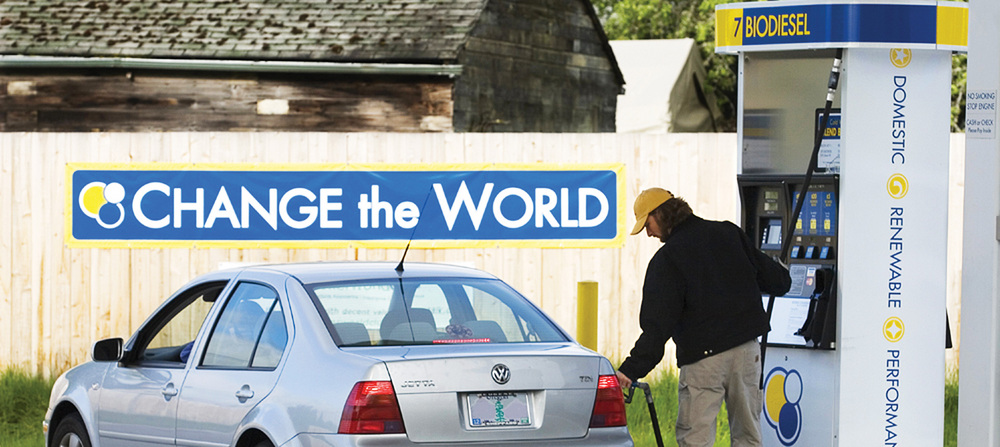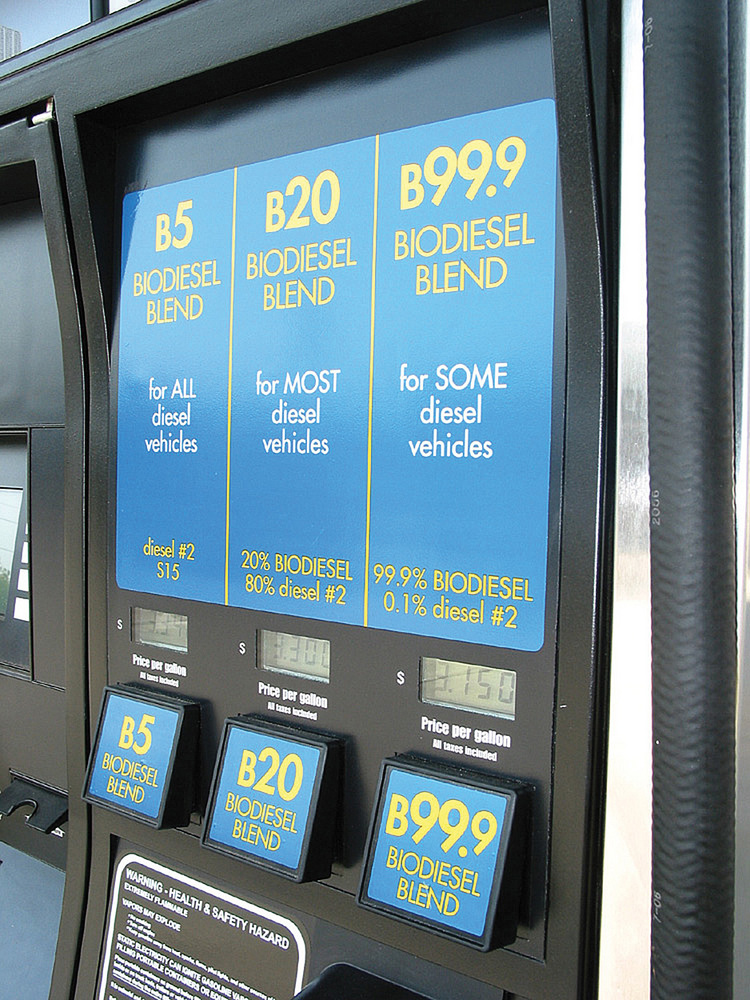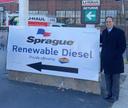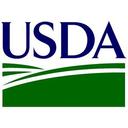Expanding Distribution Channels by Thinking Outside the Box



Photo: SeQuential-Pacific Biodiesel
July 10, 2013
BY Gavin Carpenter
The U.S. biodiesel industry has evolved significantly since taking off in the mid-1990s. What started as a grassroots movement toward a cleaner-burning alternative to petroleum diesel, mostly championed by individual environmental enthusiasts, has become an accepted mainstream industry that creates viable business opportunities and shows no signs of slowing down. This expansion is due, in part, to innovative and creative thinking about how manufacturers can distribute their product to end users, giving biodiesel a greater share of the increasingly complex alternative fuel market.
SeQuential-Pacific Biodiesel is the longest-running commercial biodiesel producer in the Pacific Northwest, so we’ve experienced the evolution of the industry firsthand, and understand the importance of thinking outside the box when it comes to overcoming distribution challenges. We produce biodiesel from used cooking oil, which we collect from more than 7,000 local restaurants, schools and businesses. We then distribute biodiesel through a broad network of commercial and retail sales channels in the region.
When SeQuential-Pacific was founded in 2005, the alternative fuels industry was just taking hold in the Pacific Northwest. Trucking fleets and other commercial entities were beginning to gain interest in running biodiesel blends in their vehicles, but few retailers offered biodiesel at their pumps. Those who did were often perceived as serving specialty target markets comprised of consumers who were particularly energetic about what’s come to be known as “green” living. Those retailers weren’t obtaining product through traditional fuel distribution channels. To achieve the kind of growth SeQuential-Pacific envisioned, we needed to devise a new strategy for getting biodiesel into the hands of customers, while also working to grow the market for locally produced alternative fuel.
Rethinking Distributor, Retail Relationships
To accomplish this growth, we developed a retail partner program that tremendously increased distribution channels, sparking exponential growth for the company and firmly cementing the stability of the biodiesel industry in the region.
Advertisement
Advertisement
Biodiesel distribution has largely followed the same model as petroleum-based fuels. Manufacturers partner with third-party distribution companies, providing wholesale product that is then bought by retailers and other end users. This model is still valuable and widely used today. It’s efficient and enables high-volume sales, but a drawback to this model is that it can limit or even remove the manufacturer from interactions with retailers.Without contact with retailers, opportunities for manufacturers to establish brand loyalty with customers are severely diminished. As a result, they have to rely on the distributor to act as a mediator when product concerns arise, which can lead to lost business in some cases. Since retail availability—either via cardlock or public access—is an essential component of fuel distribution and demand generation, a third-party distribution model is often quite limiting.
Recognizing that wholesalers were invaluable to our ability to move product, we decided to redefine our partnerships to maintain wholesaler relationships while offering greater direct access to retailers. Instead of relying on the distributor to order fuel, SeQuential-Pacific approached retailers directly, highlighting the benefits of offering biodiesel at their stations. Interested retailers would then purchase SeQuential-Pacific product through one of our partner distributors. This simple shift opened up a host of new retail sales opportunities for SeQuential-Pacific while also enabling us to provide personalized topnotch customer service, and the ability to quickly address any concerns coming from retailers before larger issues arise. Moreover, it also proved to be a fruitful strategy for nonretail sales. SeQuential-Pacific Biodiesel has partnered with local distributors to provide fuel to a variety of industry segments, including the Washington State Ferry System, which was among the first major maritime fleets to run on biodiesel.
Opening up access to station owners was just a first step in creating a retail sales network. We also worked to develop a branded pump program centered on B99 fuel. Retailers who purchased B99 from SeQuential-Pacific could rely on the company to take complete ownership for marketing the fuel. The company branded the B99 pumps under the SeQuential logo and took responsibility for educating consumers on the benefits of using high biodiesel blends. By taking a strong stake in creating demand for B99, SeQuential-Pacific positioned itself as a trusted partner for retailers participating in the program.
SeQuential-Pacific’s B99 retail partners benefit from more than just marketing support. The company also took on responsibility for the customer experience, automatically switching its B99 pumps to B50 in the winter months to prevent customers from experiencing gelling due to cold temperatures.
The twist on traditional retail distribution paid big dividends for SeQuential-Pacific Biodiesel. Today, we produce more than 6 million gallons of fuel each year and have a retail partner network with more than 30 stations, eight of which participate in the B99 pump program.
Advertisement
Advertisement
Advocating for Industry Support
In addition to fueling rapid company growth, we believe that our strategy for reaching retail partners helped spur the growth of the clean fuels industry in the Pacific Northwest. As demand for biodiesel grew, so did support for clean fuels in the region. Oregon approved a mandate for all diesel sold in the state to contain 5 percent biodiesel. The state of Washington issued a similar policy, and Oregon and California developed low carbon fuel standards to incentivize the use of biodiesel and other clean fuels.
Legislation supporting the clean fuels industry has largely been successful because companies were able to increase distribution channels for their product, demonstrating that what was already a growing industry could continue to grow and provide both economic and environmental benefits to the region. In turn, policies incentivizing the use of clean fuels through fuel blending and other means have created even more distribution channels by bringing the petroleum industry into the mix and positioning biodiesel as a complement to petroleum diesel, rather than as just a competing product.
As illustrated by the example above, rethinking the traditional distribution model can pay big dividends when it comes to developing an effective distribution strategy that helps make biodiesel more accessible in the industry. We believe the strategies that helped SeQuential-Pacific Biodiesel grow into a dominant player in the Northwest’s clean fuels industry can be effective in various market segments.
Of course, continued growth leads to continued change. As the renewable fuels industry continues to grow, and biodiesel continues to occupy greater market space, it is likely that even more distribution channels will become viable. Recognizing those opportunities as they arise will allow manufacturers to keep pace with this continuously growing industry.
Author: Gavin Carpenter
Director of Sales, SeQuential-Pacific Biodiesel
503-585-1673
gavin@sequential.com
Related Stories
Montana Renewables LLC has delivered its first shipment of 7,000 gallons of SAF to Dearborn, Michigan's Buckeye Pipeline facility. From there, the fuel will be transported to the Detroit Metropolitan Airport via pipeline for use by Delta Air Lines.
NYC took a monumental step towards clean air and a sustainable future on Jan. 11 with the grand opening of the city's first retail fuel station dispensing renewable diesel. The project is a collaboration between Sprague and Sonomax.
The USDA on Jan. 11 awarded $19 million under the Higher Blend Infrastructure Incentive Program. The grants will support projects in 22 states to expand the availability of higher ethanol and biodiesel blends.
Jet Aviation partners with World Fuel Services to offer SAF in Bozeman, Montana, and Scottsdale, Arizona
Jet Aviation announced on Dec. 22 that it has signed an agreement with World Fuel Services to secure and offer sustainable aviation fuel (SAF) on-site at its FBOs in Bozeman, Montana, and Scottsdale, Arizona, effective immediately.
Neste has partnered with Coleman Oil Company, a leading provider of fuels, biofuels, lubricants, and related products, to enable cities and businesses to have easier access to Neste MY Renewable Diesel in the state of Washington in the U.S.
Upcoming Events










